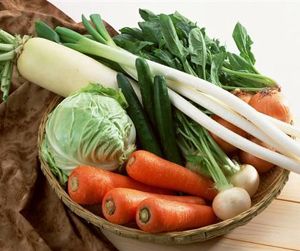Coronary heart disease, atherosclerosis, and hypertension are the most common cardiovascular diseases in China. Their incidence is related to excess fat, excessive diet, and reduced activity. Now that the weather is getting cooler, my appetite is getting better and the body is building up fat for the winter. At this time, people with cardiovascular diseases should pay more attention to diet. Experts suggest that the principle of winter diet for patients with cardiovascular disease is low-calorie, low-fat, low-cholesterol, low-sugar, low-salt, low-protein, high-potassium, high-vitamin C, and lighter foods with high cellulose content. Should eat less meals, not enough to reduce the burden on the heart.
Four points in the winter to prevent heart disease
1, a reasonable diet
Heart disease prevention should have reasonable dietary arrangements. Hyperlipidemia, unbalanced diet, diabetes and obesity are all related to dietary nutrition. Therefore, it is very important to look at the nutritional factors from the perspective of heart disease prevention and treatment. In principle, "three lows" should be achieved: low calorie, low fat, low cholesterol, and prevention of heart disease.
2. Quit smoking
An American scientist confirmed that ethanol has a toxic effect on the heart. Excessive intake of ethanol can reduce the myocardial contractility, leading to heart disease. For those who suffer from heart disease, alcoholism not only increases the burden on the heart, it can even cause arrhythmia, affect fat metabolism, and promote the formation of arteriosclerosis. To prevent heart disease, we must quit smoking and drinking.
3, improve the living environment
Places with serious pollution and high noise levels may induce heart attacks. Therefore, improving the living environment, expanding green areas, reducing noise, preventing various types of pollution, and preventing heart disease.
4, moderate exercise
Actively participate in appropriate sports. Maintaining regular and appropriate exercise is conducive to enhancing the function of the heart and promoting the normal metabolism of the body, especially for promoting fat metabolism, preventing the occurrence of atherosclerosis, and preventing heart disease. For heart patients, according to the heart function and physical condition, engaging in the appropriate amount of physical activity will help improve blood circulation, enhance resistance, improve the function of various organs of the body, prevent thrombosis, and prevent heart disease.
To prevent the onset of the disease, the winter diet must be specially conditioned to ensure the health of the patient.
Healthy food
Patients should eat more healthy foods in their daily lives. Such foods should not only have nutritive characteristics, but also be digestible. Only in this way can the nutritional burden be alleviated while the patient's physical burden can be reduced. Therefore, experts specifically reminded that patients must eat more vegetables, fruits, coarse grains, cereals, and other foods in winter diets. These foods contain almost no additives and are rich in nutrition. Therefore, they are very suitable for people with heart diseases. Patients eat.
In the daily diet, we must pay attention to eat less fat, oyster sauce, fried foods, candy, desserts and other foods. This type of food not only has a large number of artificial additives, but also contains too much sugar, excessive consumption will increase Heart and stomach burden.

2. Less salt food
The diet of heart disease should pay special attention to being as light as possible. Only such a diet can be beneficial to the health of the patient and control the hole of the disease. At the same time, special attention should also be paid to the fact that the diet of the patient should be based on less salt. If the salt content is too high, blood vessel health will be serious, and even blood vessels may be clogged, resulting in stroke and cerebral infarction. Under normal circumstances, the daily intake of salt in patients with heart disease should not exceed 6g.
It is not only in salt that contains large amounts of sodium, but also foods such as soy sauce, pickled products, etc. also contain large amounts of sodium, such as bacon, canned food, ham, and alkaline fermented foods. These high-sodium food patients also Be careful about eating.
3. Potassium-containing foods
Patients with heart disease and other diets should also pay special attention to adding more foods rich in potassium, calcium and other nutrients. This kind of food is not only beneficial to the control of the disease, but also has the effect of preventing the onset of other cardiovascular and cerebrovascular diseases. Moreover, after research, it has been found that potassium and calcium can counteract the adverse effects of sodium in the body, thereby protecting cardiovascular and cerebrovascular health. In particular, some patients with severe heart disease should eat more foods such as mushrooms, laver, potatoes, and kelp in the winter diet.
In addition to soy, banana, citrus, etc., these foods also contain a lot of potassium. In milk, sesame paste, shrimp, bean products and other foods, it is rich in calcium.
4. Drink plenty of water
Patients with cardiovascular and cerebrovascular diseases should also pay attention to the habit of drinking plenty of water in their daily diets, especially for those with high blood pressure. It is best to drink a glass of water immediately after getting up in the morning. The purpose of doing so is to diuretic purposes, in addition to drinking water can also help patients with bowel movements, thereby preventing hypertension and arteriosclerosis.
These are the principles of diet in patients with heart disease in winter, in addition to these, patients should also develop more exercise habits in winter life. However, morning exercise is not recommended. At this time, the outdoor temperature is relatively low, so it is very unfavorable to the health of the patient.
Seven diets to strengthen your fitness
1. Carp contains omega-3 fatty acids, which can effectively lower blood pressure and reduce blood viscosity. Two meals per week, you can reduce the probability of death from a heart attack by one-third, can be strong fitness.
2, walnuts, cashews, almonds and other nuts contain a lot of omega-3 fatty acids and units and polyunsaturated fats. At the same time, you can eat dietary fiber. This is conducive to the protection of heart health.
3. The lutein, folic acid, potassium, and fiber contained in spinach help the heart maintain a healthy state. But as long as eating more vegetables has a very good effect on the heart. The study found that compared with people who do not eat vegetables, those who eat two and a half vegetables a day have a 25% lower risk of heart disease.
4. Oat-rich omega-3 fatty acids, folic acid and potassium are good for the heart and help keep the arteries open. You can choose to eat a bowl of oats for breakfast in the morning.
5. The unsaturated fatty acids contained in olive oil are among the highest in all edible oils and can effectively reduce the level of bad cholesterol in the body, thereby reducing the risk of heart disease. Try to choose extra virgin oil.
6, lentils, chickpeas, black beans and kidney beans contain a lot of fiber, while rich in omega-3 fatty acids, calcium and soluble fiber, can provide the heart with rich nutrition, prevent heart disease.
7. Regardless of blueberries, blackberries, or strawberries, as long as you like to eat, they all contain anti-inflammatory ingredients that can reduce the risk of heart disease and cancer, help cardiovascular health, and prevent heart disease.
